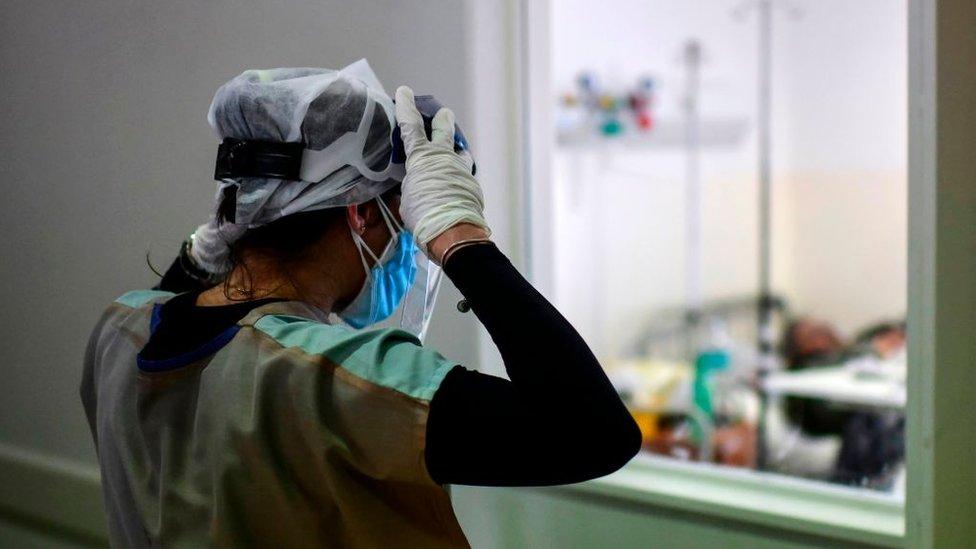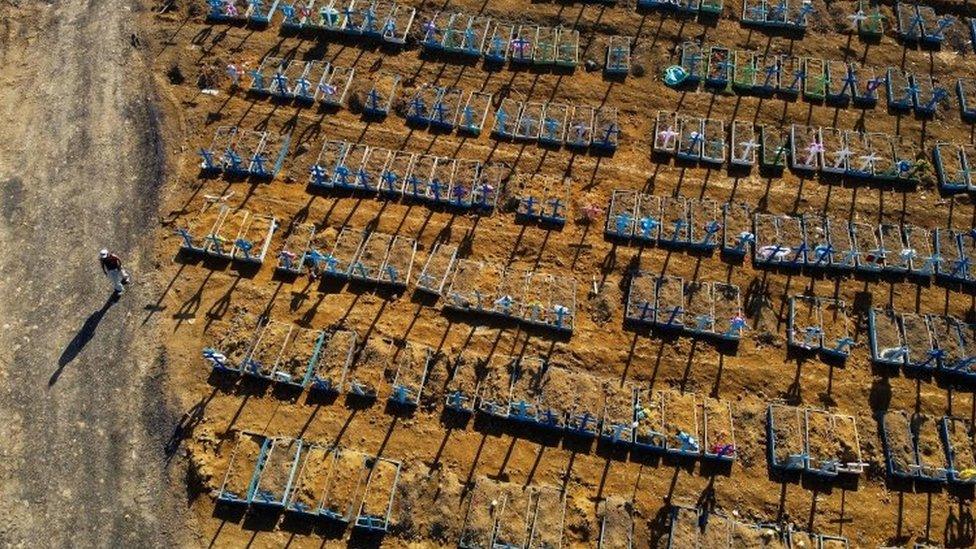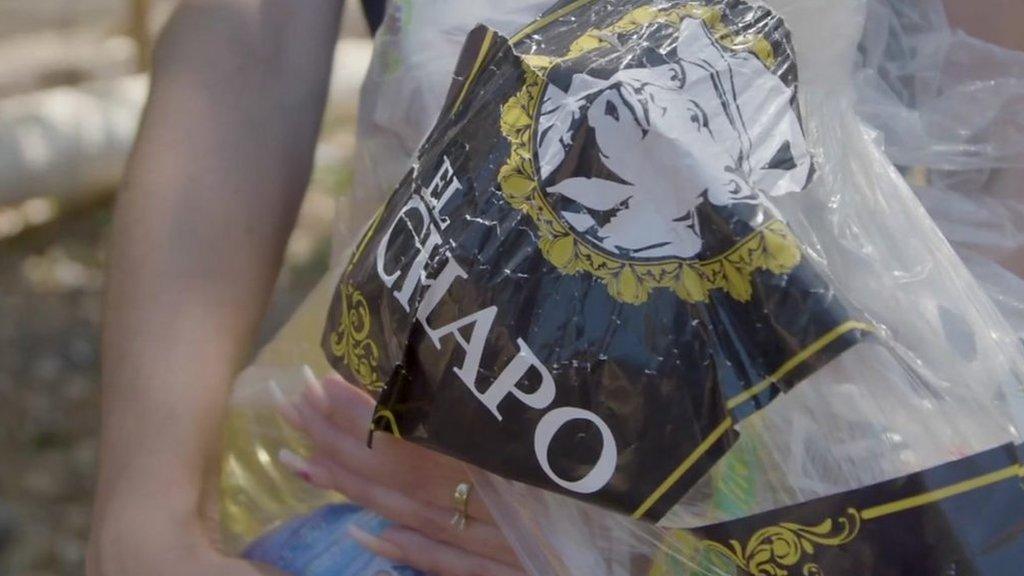Coronavirus: Why politics means success or failure in South America
- Published

Despite political divisions and an economic crisis Argentina has kept cases comparatively low
South America is the new epicentre of the global coronavirus pandemic, but the region's leaders have responded to the crisis very differently.
A great deal has been said about poverty in this part of the world, like the favelas in Brazil where social distancing is hard to achieve and where basic sanitation is not always a given.
There is also the fact that there are so many millions of unregistered workers who rely on earning money every day to put food on the table for their families.
The impossible choice that many people have told me they face is to risk starving or risk getting Covid-19.
There are, undoubtedly, massive challenges in this, one of the most unequal parts of the world. But, say many experts, politics is just as important as poverty.
"I always defended - as many of us in public health did - the importance of having strong, structured health systems," says Deisy Ventura, professor of Global Health Ethics at the University of Sao Paulo.
"But if there's one thing I have learned from the pandemic it's the importance of politics - for good and bad."
Unity in Argentina
Professor Ventura singles out Argentina. Leading a country already deep in economic crisis, President Alberto Fernandez, who has been in power for less than a year, locked down swiftly when the virus hit.
The country has registered just over 90,000 cases and 1,720 people have died.
"It's an extremely divided country, it's been through a very intense political crisis but those adversaries were able to sit around the table and come to an agreement over the necessities of quarantine measures," says Professor Ventura.
"They have press conferences with various politicians from different political stripes and they announce things together - so the population understand what needs to be done."
Uruguay and Paraguay have also been singled out as examples. They have fewer than 100 deaths between them, even though they both share borders with badly hit Brazil.
But they are the exceptions.
'Pandemonium' in Brazil?
"Unfortunately in some Latin American countries - Brazil especially - the issue of measures has become partisan and that is absurd," says Professor Ventura.
Its President, Jair Bolsonaro, is a man who has made light of the virus from the very start.
He's called it the sniffles and seldom paid tribute to the nearly 70,000 people who have died. He has disagreed with his own health ministry over the importance of social distancing, he has argued with state governors who introduced quarantine measures and he has pushed to re-open the economy at the earliest opportunity.
Now he has the virus himself, he's taking the opportunity to promote the unproven anti-malarial drug hydroxychloroquine as a valid treatment.

Brazil's president played down the pandemic before contracting coronavirus
This confused political messaging doesn't help.
"Brazil is the only country dealing with a pandemonium and a pandemic at the same time," says Miguel Nicolelis, a neuroscientist who is helping north-eastern states tackle Covid-19.
"Nowhere that you can look in the world you can see a political upheaval at the same time you are trying to fight the coronavirus. The response of the federal government has been the worst you could imagine."
Communication is key during an emergency, says Professor Ventura.
"People learn very quickly when they are exposed to a risk. They need to understand the risk, communication needs to be efficient and they need to trust authorities."

Brazil has seen the most Covid-19 deaths in the region
But that lack of trust is echoed across the region.
A 'missed opportunity' for Chile?
Mati Libuy Rios is a doctor in Maipu, one of the worst-hit parts of Chile's capital Santiago. A relatively rich country in South America, Chile has seen a sharp rise in cases and deaths in recent weeks. More than 300,000 registered infections and nearly 7,000 confirmed deaths.
Mati has been working flat out in recent months - on one recent shift, he had to tell 10 families that their loved ones were dying.
"It's really hard - I am 30 years old, this will probably be the most challenging experience of my life as a physician. Nobody prepares you for this situation."
There is tension in Chile over lockdown - and the pandemic hit just months after widespread protests last year over social and economic inequalities.
How Mexican cartels are taking advantage of Covid-19
Mati thinks the government failed to step up to the task of dealing with the pandemic early on.
"We have massive health inequalities, people need to work to get food every day, it's as simple as that," he says.
"The government needed to give people all the material conditions to stay at home and at the same time increase testing, isolate contagious people and track all the possible contacts. It's the simplest way to control it and they missed the opportunity."
But nothing compares to the numbers in Brazil - a country where many feel the pandemic is nothing but political.
"Every country that took this lightly - that initially made a joke about it - paid a huge price," says Miguel Nicolelis.
"When politicians challenge biology, biology wins by a huge margin. Sorry and sad to say as a Brazilian but it's the reality. We didn't prepare, take it seriously and we now see exponential curves exploding. You cannot even describe this."

PERU'S LOCKDOWN Swift measures fail to halt cases rising
COSMETIC SURGERY BOOMS Clinics report rise in treatment amid pandemic
NEW ZEALAND'S SUCCESS How the country went "hard and early" to beat virus
GLOBAL SPREAD Tracking the pandemic

- Published10 July 2020

- Published10 July 2020

 mapped
mapped